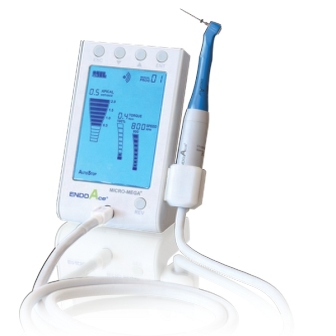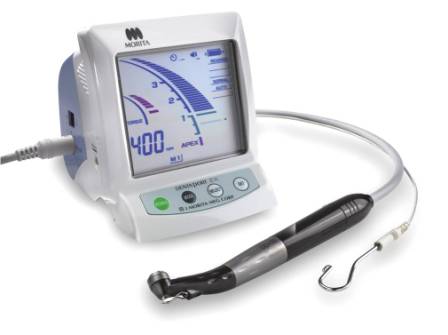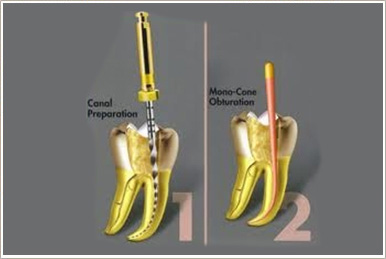The introduction of nickel-titanium (NiTi) rotary files to endodontics almost two decades ago has changed the way root canal preparations are performed, enabling more complicated root canal systems to be shaped with fewer procedural errors.
Rotary endodontics employs electrically-powered instruments to perform the root canal treatment rather than traditional stainless-steel manual files. The electric hand tool is equipped with a tip constructed out of nickel titanium – a material that is five times more flexible than stainless steel.
Due to the flexibility and unique movement of the nickel-titanium instrument, it can be inserted deeply into a curved root canal without stretching or damaging the passageway. This makes for a quick and reliable procedure.
Current experimental and clinical evidence shows that NiTi rotaries promote improved preparation quality and specifically reduce the incidence of gross preparation errors.



Advantages of rotary endodontics?
- The nickel titanium cleans out the root canal much more smoothly and consistently.
- Rotary endodontic procedures are more reliable with less chance of complications.
- Rotary tools make the root canal procedure much faster.
- The electric tools are much quieter and smoother, without the loud grinding that accompanies manual files.
- The fast treatment time, in conjunction with quieter instruments, make for a much more comfortable and less frightening experience for patients.
Although using a manual file will still clean out the root canals thoroughly, most dentists and patients prefer rotary endodontics. In fact, it was largely the loud grinding of manual files that gave root canal therapy the reputation of being a “scary” or “undesirable” procedure. With rotary endodontics, patients feel much more comfortable during the treatment and barely notice the whirring of the tools.





